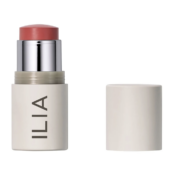
“Comparison is the thief of joy.”
That’s the motto many of us hold close to steel ourselves as we scroll through Instagram and see someone doing something, having something, we wish for ourselves. But isn’t comparison inevitable?
A few years ago, I read an interesting article about the motivating power of certain kinds of envy, and have thought on it since. The point being made was that “the right kind of envy can serve an important personal and social function. It spurs competition and improvement.” But in arriving at that, it talked about the differences between admiration and envy.
Admiration is seen as a noble sentiment—we admire people for admiring others, detecting, in their admiration, a suggestion of taste and humility. Envy, by contrast, is thought to be inherently bad—a “feeling of mortification and ill-will occasioned by the contemplation of superior advantages possessed by another,” according to the Oxford English Dictionary.
And it talked about what spurs envy versus admiration:
Richard Smith, a psychologist at the University of Kentucky who began studying envy in the nineteen-eighties, writes that the feeling typically arises from a combination of two factors. The first is relevance: an envied advantage must be meaningful to us personally. A ballerina’s beautiful dance is unlikely to cause envy in a lawyer, unless she once had professional dancing aspirations of her own. The second is similarity: an envied person must be comparable to us. Even though we’re both writers, I’m unlikely to envy Ernest Hemingway. … When we admire someone, we do so from a distance.
To me, this suggests that a slight shift from the advice to avoid comparison might be more useful: if comparison is inevitable, the emphasis might be better placed on recognizing how we differ from those to whom we compare ourselves.
Are you motivated or hindered by feelings of envy? And what strategies do you employ to make yourself more likely to have the more productive response? How do you go from envy to admiration?
[Excerpts from “Can Envy be Good For You?,” The New Yorker, by Maria Konnikova]




































7 Comments